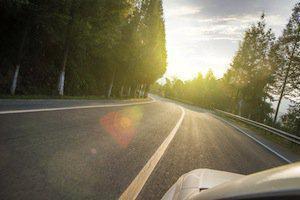 Google has recently made headlines for its work creating self-driving cars. While getting into a traffic accident with one of these cars is not likely to happen during tomorrow morning’s commute, they are interesting to consider in regards to more realistic circumstances: accidents involving cars owned by companies.
Google has recently made headlines for its work creating self-driving cars. While getting into a traffic accident with one of these cars is not likely to happen during tomorrow morning’s commute, they are interesting to consider in regards to more realistic circumstances: accidents involving cars owned by companies.
The development of self-driving cars has caused people to begin questioning the legal ramifications of these cars, such as, “Who is responsible if a self-driving car crashes?” The most common theory is that a car’s manufacturer would be liable for an accident. However, some people have also suggested simply holding a robotic car itself liable.
The idea of holding a car itself liable seems a bit odd at first, but it is very similar to what happens today with corporations involved in car accidents. Additionally, these concerns implicate two related legal doctrines—legal personhood and agency law. Legal personhood defines what entities a court will allow in a lawsuit. Agency law is the related idea of when we hold people responsible for the acts of others.
Legal Personhood
Legal personhood is a very different idea than the ordinary conception of personhood. Legal personhood simply determines whether a “person” can be a party in a lawsuit. Humans, commonly referred to as natural persons, qualify as legal persons. Corporations do so as well. Hence, this is why, when a commercial trucker employed by a trucking company gets into an accident, a victim can sue a trucking company as its own entity.
The idea for self-driving cars is similar. By making a car its own legal person, it can carry insurance on its own. Therefore, a victim can simply sue a car. If negligence is found, such as a fault in the driving algorithm or poor maintenance, a car itself would then pay.
Agency Law
The idea to make cars legally distinct also solves another problem—agency law. Agency law governs when courts hold one person legally responsible for the acts of another, which ordinarily happens when one person is authorized to act on another’s behalf. For instance, imagine an employee who gets into a car accident. If that person is a driver who is driving between job sites, then the law would hold his company liable. But, if the same driver is headed to a grocery store after hours, the responsibility will then rest on him or her.
This issue returns in the context of self-driving cars because it makes the idea of holding a car’s manufacturer less appealing. If a crash results from a car's poor maintenance, rather than a flaw in a car’s design, it then seems wrong to hold a company that made a car liable since it was the act of a car’s owner that caused a crash.
If you have recently been involved in a car accident and have questions about your rights, a Green Bay personal injury attorney or Appleton personal injury attorney at [[title]] can help. With offices located in Appleton, Green Bay, and Oshkosh, our firm is here to help you understand the law and to help you get the full, fair compensation you deserve. Call 920-739-7366 to schedule your consultation today.



